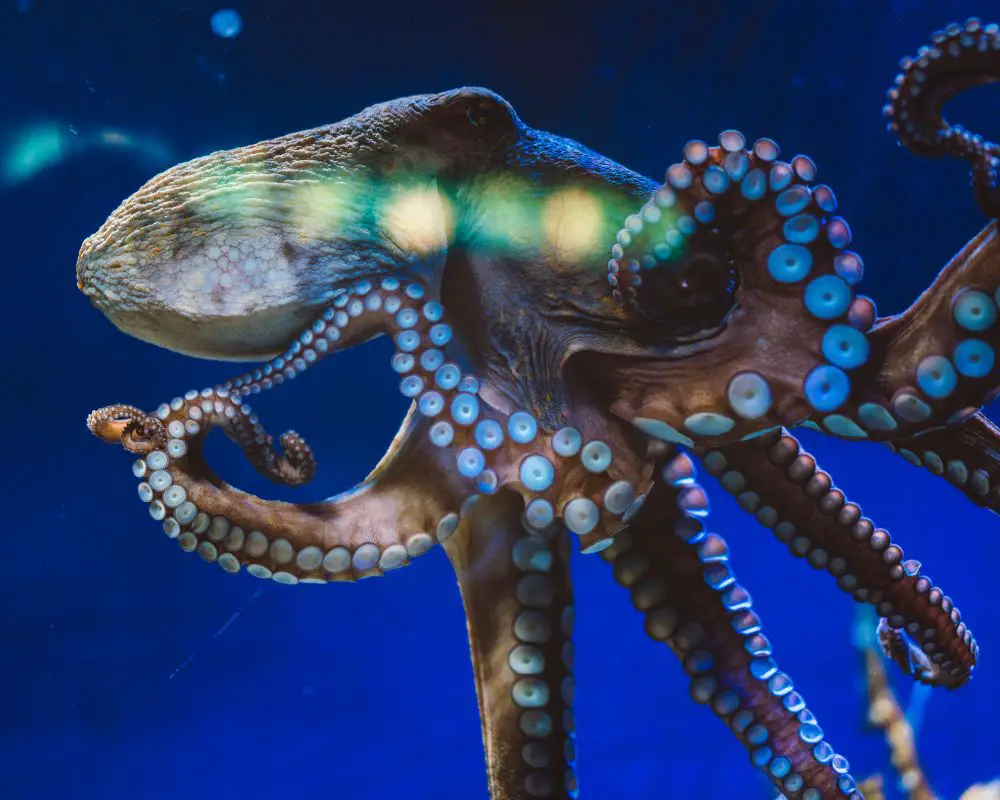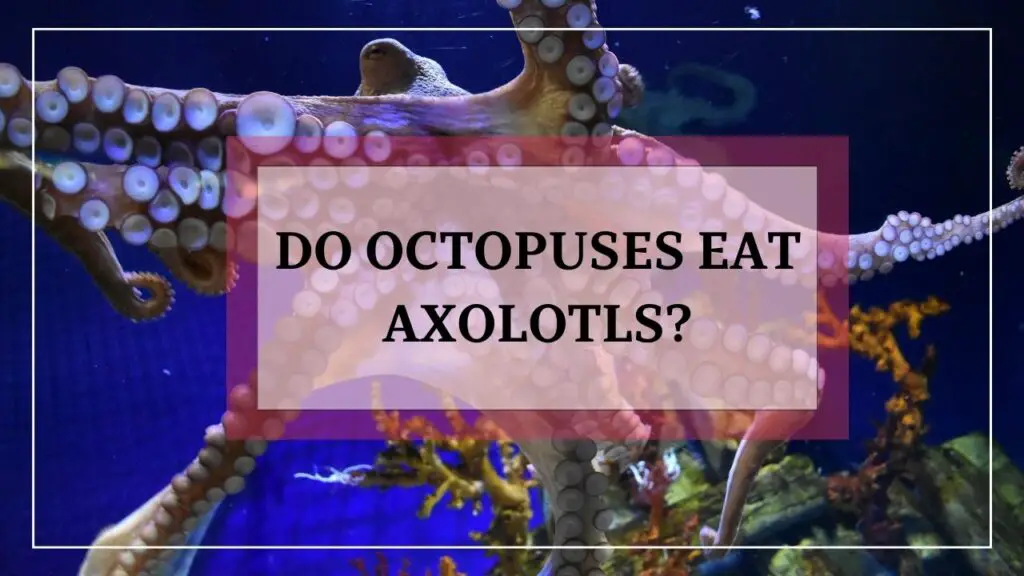Today, we’re diving deep into the underwater world to explore a fascinating question: Do octopuses eat axolotls? Octopuses and axolotls are incredible creatures, each with their unique features and habitats.
So, here’s the answer to our main question: Octopuses, those clever and crafty cephalopods, do not usually eat axolotls. Why, you ask? Well, it’s because octopuses mainly live in the salty sea, while axolotls prefer the freshwater homes of lakes and canals.
But don’t worry, we’ll take a closer look at these extraordinary animals, their diets, and their environments to understand why octopuses and axolotls rarely cross paths.
Can Octopuses Prey on Axolotls?

Well, my friend, the answer is a resounding no! Octopuses are incredible hunters, but they typically don’t have axolotls on their menu. Why, you ask? Let me dive right into it and explain.
A Tale Of Two Homes
Octopuses prefer the salty waters of oceans and coral reefs, while axolotls reside in freshwater environments like lakes and canals. Octopuses have their underwater hideouts in the vast blue oceans, while axolotls like to kick back in the calm and refreshing freshwater spots. It’s like comparing a seaside vacation to a peaceful lakeside retreat. They just prefer different hangout spots!
A World Of Flavors
Now, let’s talk about food preferences. Octopuses are clever hunters and have a varied diet. They enjoy munching on crustaceans, mollusks, and even fish. They’re like the master chefs of the ocean, creating tasty meals from a diverse menu. But axolotls? Well, they have their taste buds, my friend. They gobble up tiny aquatic creatures like worms, insects, and even small fish. They’re the connoisseurs of the freshwater culinary scene.
So, you can see why octopuses and axolotls don’t often meet at the dinner table. It’s not their style! Octopuses have their seafood feast in the salty seas, while axolotls savor their freshwater treats in the tranquil lakes. They prefer their flavors and habitats, just like we humans have our own favorite foods and hangout spots.
Rare Encounters and Special Cases
But hey, in this big world of ours, anything is possible, right? Sometimes, in special cases like aquariums or human intervention, these two remarkable creatures might find themselves in the same tank. But fear not! With proper care and understanding, we can ensure their safety and well-being.
Ensuring Safety In Unlikely Situations
In these rare encounters, it’s crucial to create a safe and suitable environment for both octopuses and axolotls. This means providing separate tanks with appropriate water conditions, temperature, and hiding places. By respecting their unique needs and habitats, we can prevent any mishaps and promote harmony between these fascinating creatures.
FAQs
Do Octopuses Eat Axolotls In The Wild?
No, octopuses do not typically eat axolotls in the wild. Octopuses primarily inhabit marine environments, such as oceans and coral reefs, while axolotls reside in freshwater habitats like lakes and canals. Their distinct natural habitats and dietary preferences make it highly unlikely for octopuses to prey on axolotls.
Can I Keep Octopuses And Axolotls Together In The Same Tank?
It is not recommended to keep octopuses and axolotls together in the same tank. Octopuses are known for their hunting instincts and may view axolotls as potential prey. Additionally, the environmental requirements for these species are different, with octopuses needing saltwater and axolotls requiring freshwater. To ensure the well-being and safety of both creatures, it is best to provide separate tanks with appropriate conditions for each species.
Is It Possible For An Octopus To Accidentally Eat An Axolotl In Captivity?
While it is rare, there have been some documented cases of octopuses accidentally preying on axolotls in captivity, especially when they are housed together in the same tank. This can occur if the octopus perceives the axolotl as food or if they are kept in cramped or unsuitable conditions that increase stress and predatory behavior. To prevent such incidents, it is crucial to provide proper housing, enrichment, and species-specific environments for both octopuses and axolotls in captivity.

